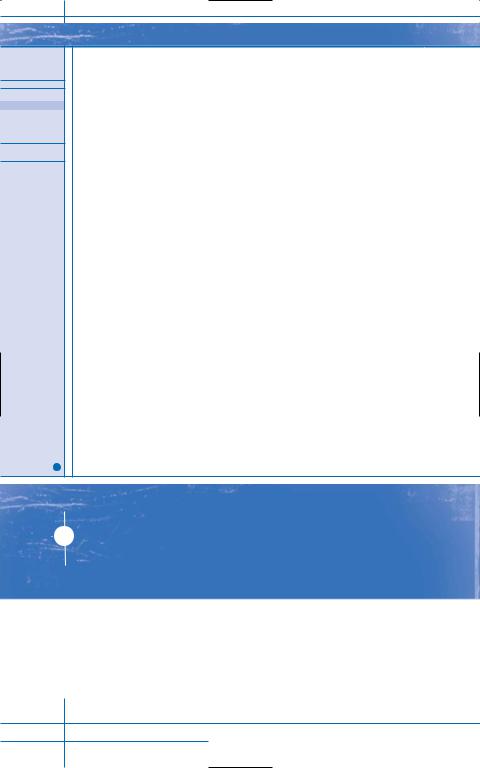
- •Table of Contents
- •Introduction
- •The 5 Dramatic Throughlines
- •The 6 Conflicts
- •The 21 Genres
- •The Replay
- •Fate
- •The Parallel
- •The Episodic
- •The Journey
- •Interactive
- •Metafiction
- •The Slice of Life
- •Introducing the 55 Dramatic Situations
- •Situations 1 & 2
- •Situations 3 & 4
- •Situations 5 & 6
- •Situations 7 & 8
- •Situations 15 & 16
- •Situations 17 & 18
- •Situations 43 & 44
- •Situations 45 & 46
- •Situations 47 & 48
- •Situations 49 & 50
- •Situations 51 & 52
- •Research

Situations 1&2
SUPPLICATION AND BENEFACTION
“The more you depend on forces outside yourself,
the more you are dominated by them.”
–HAROLD SHERMAN
Supplication
Supplication means to appeal, request, beg, call, plea, ask, invite, invoke, pray, petition, worship, or honor something or someone for help or assistance.
While Supplication in real life is the act of asking for help, in drama it requires a Persecutor, a Petitioner (the suppliant), and a Power in Authority to make it interesting and to add Conflict.
The Persecutor acts as the obstacle to the Petitioner’s goal, which is receiving help. He is in direct opposition to the Petitioner’s needs.
The Power in Authority adds Conflict by either forcing the Persecutor to give help (for the time being) or allowing the Persecutor to refuse to help.
As a writing device, Supplication presents a wonderful opportunity to explore character as well as notions of power and authority.
First of all, the character is placed in a very dire situation where she needs outside help. How she responds to her situation and whether or not help is offered to her will show us a lot about her and what is important to her. In every moment of life a person has the choice to be happy or angry no matter what is occurring around him.
Second, the character that has the power to help her can choose to wield that power in many ways. This is a great opportunity to develop a strong theme or message about the abuses of power, control, and authority.
THE PETITIONER
There are three general types of Petitioners according to their sit- uation—Need or Desperation, Superstition or Fear, and Laziness or Inertia.
Situations 1 & 2 |
103 |

Need or Desperation means a Petitioner is in need of help from an outside source and can not possibly fix her situation on her own. This can be due to social factors such as women in certain circles not being allowed to go to work or school. They won’t have the education they need to help themselves. Think of the character Ada Monroe in Cold Mountain. She lived on a farm yet nearly starved to death because she never learned how to plant a crop or run a farm.
Superstition or Fear means the Petitioner strongly believes that if he does not ask for help or a blessing he will surely fail. An example of this would be a character out of mythology invoking the gods for help before going off to battle. To overlook such an act would surely mean defeat in his eyes.
Laziness or Inertia comes into play when a character probably could help herself but chooses not to. She possibly fears change or sees her options as beneath her. An example would be a character going to her parents for money when she is capable of working but doesn’t like the jobs that are available.
THE PERSECUTOR
The Persecutor usually uses power to instill fear in the Petitioner. Otherwise, asking the Persecutor for help would be an easy thing to do.
There are generally five types of power available for the Persecutor, according to Dr. Christopher L. Heffner in AllPsych:
Coercive power is the power to punish. Parents are said to have coercive power because they can place their child in time-out, for example; bosses have coercive power because they can fire an employee or assign an employee a less pleasing job.
Reward power is almost the opposite; it is the power to reward. In that sense parents and bosses have this type of power as well, as do many others in our lives.
Legitimate power refers to the power granted by some authority, such as the power a police officer has due to the local or state government or the power a professor has due to the rules of a college or university.
Expert power results from experience or education. Those individuals with more knowledge tend to have more power in situations where that knowledge is important. For instance, the physician will have more power in a medical emergency than the plumber. But, when the pipes explode and the house is being flooded, the physician is not the person to call.
Referent power refers to admiration or respect. When we look
104 Story Structure Architect

up to people because of their accomplishments, their attitude, or any other personal attribute, we tend to give them more power over us. Imagine being asked to do something by your hero or your favorite movie star; we are very likely to comply out of admiration or respect.
There is one more type of power I’d like to mention, and that is the power of forgiveness. This can fall under Reward Power. The Petitioner may be asking for forgiveness, which gives the Persecutor power over the Petitioner’s inner feelings at a very deep level.
The Persecutor can have one or all of these types of power at his disposal to use against the Petitioner.
POWER IN AUTHORITY
The Power in Authority is usually someone who has power and the will to use it. Whether he helps or harms is purely up to him. Power is this character’s identity and he lives to exercise it. He may be a judge, policeman, parent, teacher, boss, or anyone who is “above” another person.
The Power in Authority can also be a group of people. These people all have an agenda and often get together to make rules or discuss their beliefs. They then judge others according to their standards. In some cases the group has become so large that it encompasses almost all of society. In this case the Power in Authority is a more abstract social mores that must be adhered to.
As an elder friend of mine once said, “We had to dress for dinner and there was no such thing as women wearing slacks. It was just not allowed.” (You’d be amazed at the type of characters and stories you can create from just talking to your elder family members!)
Whether Supplication is used as plot, subplot, or incident, the elements of the beginning, middle, and end are the same:
BEGINNING: A Petitioner, who has had a tough time of it, asks a Persecutor for help.
•Is she humiliated by asking?
•Does she feel entitled to the request?
•Was she pushed by someone else into asking?
•Does she really need help?
•How dire is her situation?
•Is she asking for help to assist someone else?
•Have the Persecutor and Power in Authority been introduced?
Situations 1 & 2 |
105 |

MIDDLE: The Petitioner receives or is denied help and responds accordingly.
•If help is given, will she play the victim and not join in helping to change her situation? Or will she become active and learn how to help herself as she works with her rescuer?
•Does help come from someone other than the Persecutor? (This gives the Persecutor two characters to deal with now.)
•If help is not given, will the Petitioner play the victim and wind up in a worse situation? Or will she pull her resources and help herself? (Usually, if help is refused, the situation ends tragically for the Petitioner.)
•Does the Petitioner have a positive outlook about her situation? This would enable her to press on no matter what happens. Or is she negative about her situation?
•Where does her strength come from? A character biography may help to flesh out where she gets her determination.
•Will the Power in Authority take an interest in what transpires here? Or does he feel his job is done?
END: The Petitioner seals her own fate by her response to the events.
•Since the Petitioner depends so strongly on outside forces for help, she is at their mercy. If she managed to fend for herself a bit, she may be able to turn the coming tragedy around. The one thing in life a person has control over is her response to events.
•Is the Petitioner better off for her supplication? How did she grow?
•Did the Persecutor learn anything?
•Does the Power in Authority care about what happened to the Petitioner?
•What point did the story make?
“Let him that desires to see others happy, make haste to give while his gift can be enjoyed, and remember that every moment of delay takes away something from the value of his benefaction.”
–SAMUEL JOHNSON
Benefaction
Benefaction is the act of conferring aid of some sort, a charitable gift or deed, an act of goodwill, or a contribution.
Benefaction can also be used as a dramatic device to reveal character and explore notions of power and authority, just like Suppli-
106 Story Structure Architect

cation. Perhaps Benefaction can show the positive side to power when power is justly used or show the importance of helping our fellow man.
Maybe the act of Benefaction empowers a character before Supplication becomes necessary. Or Benefaction can be used alongside Supplication, only to come halfway through the story and change the power structure between all the characters completely. The Benefaction can get in the way of the Persecutor’s plans, for example.
The Petitioner becomes the Benefactor in this situation, and like Supplication, you must also have a Persecutor and a Power of Authority to make this situation work.
Whether Benefaction is used as plot, subplot, or incident, the elements of the beginning, middle, and end are the same:
BEGINNING: The Benefactor sees a chance to help a person or a cause. She decides to help but a Persecutor tries to stop her, possibly confusing her. A Power in Authority gets involved.
•Why does the Benefactor want to help? Is she being selfless or selfish?
•What is the Power in Authority?
•Why does the Persecutor want to stop the Benefactor? What is the Persecutor’s motivation beyond just being nasty?
•How strong is the Benefactor’s motivation to help? Will she take risks?
•Does the Persecutor hate the Benefactor or the one who needs help?
MIDDLE: If the Benefactor offered her help to someone in need, the Persecutor is trying to cause the Benefactor trouble. If the Benefactor didn’t offer to help someone in need, she is at odds with herself.
•If she offers help, what kind of trouble will the Persecutor cause?
•If she didn’t offer help yet, does the Persecutor hold any power over the Benefactor?
•Has the Power in Authority gotten involved yet?
•Are there any other characters that can help or harm the situation?
•Can another character push or guilt the Benefactor into doing the right thing? Or the wrong thing?
END: The Benefactor responds to the Persecutor and tries to do what she feels is right. The Power in Authority will either support her or cause her downfall.
•Does the Benefactor face the Persecutor herself? Or does she sneak around?
Situations 1 & 2 |
107 |

•Does she think the Power in Authority will help her? Is she counting on it?
• How important is it for the Benefactor to confer help? What is at stake here?
• What does the reader want the Benefactor to do?
EXAMPLES
The Iliad, HOMER
SUPPLICATION USED AS INCIDENT—King Priam asks Achilles to return his son’s body to be buried properly.
The Ninth Gate, ROMAN POLANSKI
SUPPLICATION USED AS SUBPLOT—A rich book collector hires Johnny Depp to find a book that will allow him to piece together a Supplication to the devil to obtain immortality.
Planes, Trains and Automobiles, JOHN HUGHES
BENEFACTION AS INCIDENT—All Neal Page wants to do is to get home for Thanksgiving. When his flight is cancelled due to bad weather, he has no choice but to merge resources with another stranded traveler, the shower curtain ring salesman Del Griffith. After several mishaps and arguments, Neal invites Dell home for Thanksgiving dinner when he learns Dell has nowhere to go.
The Corn Is Green, IRVING RAPPER
BENEFACTION USED AS PLOT—Schoolteacher Lilly Moffat is dismayed by conditions in a Welsh mining town. She sets up a school to teach fundamental education to the villagers. Her housekeeper and daughter oppose the project, as does the local Squire, who will not rent her space. Using part of her own home, she goes ahead with Miss Moffat’s School. One of her students, Morgan Evans, turns from bully to brilliant student.
108 Story Structure Architect
